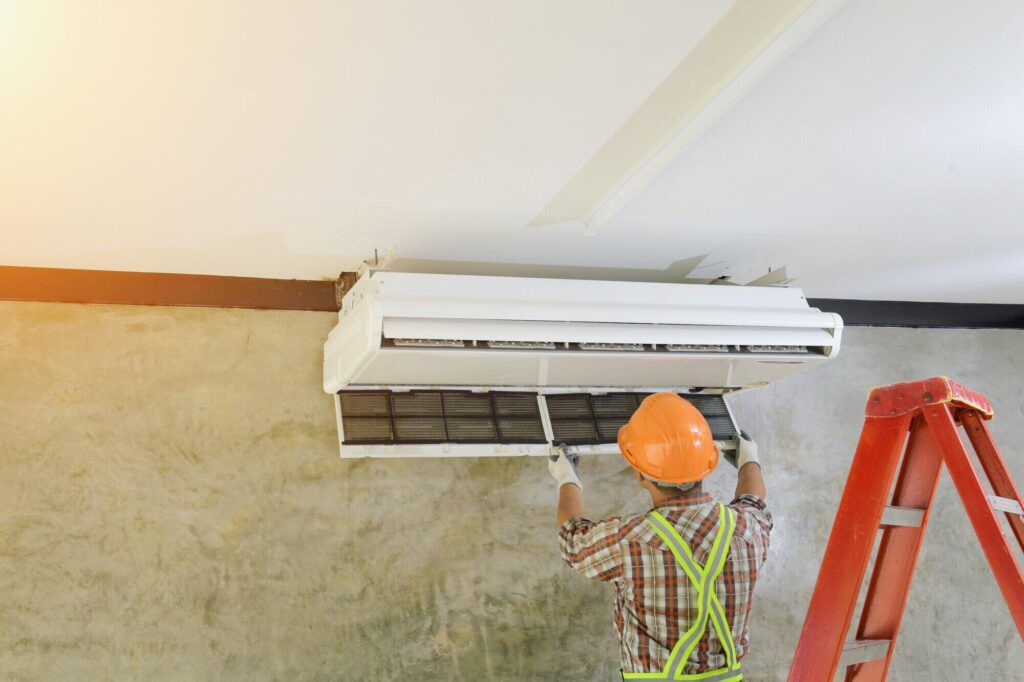When the summer heat rolls in and your air conditioner isn’t working, it can feel like a disaster. Instead of sweating and feeling uncomfortable, you can take control and learn about air conditioning repair.
Knowing some basics about your AC unit and how it operates can help you troubleshoot problems and decide when to call for help. This guide will help you. It covers common AC issues, repair tips, and using HVAC supplies.
Common Air Conditioning Problems
Many issues can affect your air conditioning unit, but some are more common than others. Here are a few you should watch for:
Insufficient Cooling
If your air conditioner is running but not cooling your home effectively, it might be due to dirty filters, frozen coils, or low refrigerant levels.
Odd Noises
Strange sounds such as banging, hissing, or popping could indicate loose parts or potential damage within the unit.
Constant Running
If your AC runs continuously without reaching the desired temperature, it may have a thermostat issue or could be improperly sized for your space.
Water Leaks
Leaky AC units might indicate a blocked drain line or low refrigerant levels. It’s crucial to address leaks quickly to prevent water damage.
Troubleshooting Your Air Conditioner
If you encounter any of the problems above, here are some steps to help you troubleshoot your air conditioner:
Check the Thermostat
Make sure it’s set to cooling mode and that the temperature is set lower than the current room temperature.
Inspect the Filters
Dirty filters reduce airflow and efficiency. Clean or replace them regularly to keep your system operating smoothly.
Look for Ice Buildup
If you see ice on the coils, turn off the unit and let it thaw. This could mean low refrigerant or poor airflow.
Examine the Condensate Drain
Ensure the drain is clear. You can use a wet/dry vacuum to remove blockages.
Preventive Maintenance Tips
Preventive maintenance can save you from costly repairs in the future. Here are some simple tips to keep your air conditioner in top condition:
Schedule Regular Inspections
Have a professional check your air conditioning system at least once a year. They can identify issues before they become major problems.
Clean the Outdoor Unit
Remove debris, such as leaves and grass, from around the outside of your AC unit to prevent blockages.
Change Filters Monthly
Regularly changing or cleaning your filters will improve efficiency and prolong the lifespan of your system.
Understanding Different Air Conditioning Systems
There are various types of systems for air conditioning repair, each with specific features.
Central Air Conditioning
This is a common type of system used in homes. It uses ductwork to distribute cool air throughout the house.
Heat Pumps
Heat pumps are versatile and provide both heating and cooling. They are an energy-efficient choice, especially in mild climates.
Window and Portable AC Units
These units are great for cooling individual rooms. They are easy to install and remove, making them a popular option for renters.
Getting help from qualified HVAC contractors can ensure that the repair is done correctly and safely. Experienced technicians know how to handle complex air conditioning heating units and will use the right HVAC supplies to fix your unit.
Taking Charge of Your Air Conditioning Repair
Understanding air conditioning repair empowers you to manage your comfort during the hot summer months. By recognizing common problems, learning how to troubleshoot issues, and knowing when to call in the professionals, you can keep your AC running smoothly. Don’t forget to prioritize preventive maintenance to extend the life of your air conditioning system.
For more helpful tips, check out the rest of our site today.







